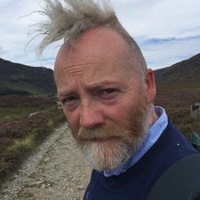Biography
I'm an experimental psychologist, and my research is now focussed on the psychology of human-AI interaction. We are trying to build and control Agents that perform specific tasks in stable ways underpinned by a 'Psychology'.
In the past my research has primarily addressed two questions. How does the brain manage to rapidly construct and update a reasonably good model of the world within our conscious experience? And, how does our model of the world avoid distortion or false beliefs when exposed to social influences from other people or from persuasive new technologies, like AI?
My background and training is in the cognitive neuroscience of long-term memory, stemming from my St Andrews University PhD work, using EEG to identify neural correlates of conscious and unconscious retrieval processes. I continued along similar lines, using PET and fMRI, in London as a research fellow at the UCL Institute of Cognitive Neuroscience, before moving to Aberdeen at the turn of the century. Here, I've continued to work on the neural basis of retrieval processing, but over the years I've grown increasingly interested in how our model of the world adapts to social influences that carry useful information or misinformation. In 2015, I began to work almost exclusively on cognitive and EEG-based diagnostics for Alzheimer's disease, leading to the formation of a spin-out company. In 2019, I returned to the School of Psychology full-time, where I've continued to research social influences upon cognition, in particular how the influence of AI may be psychologically regulated.

